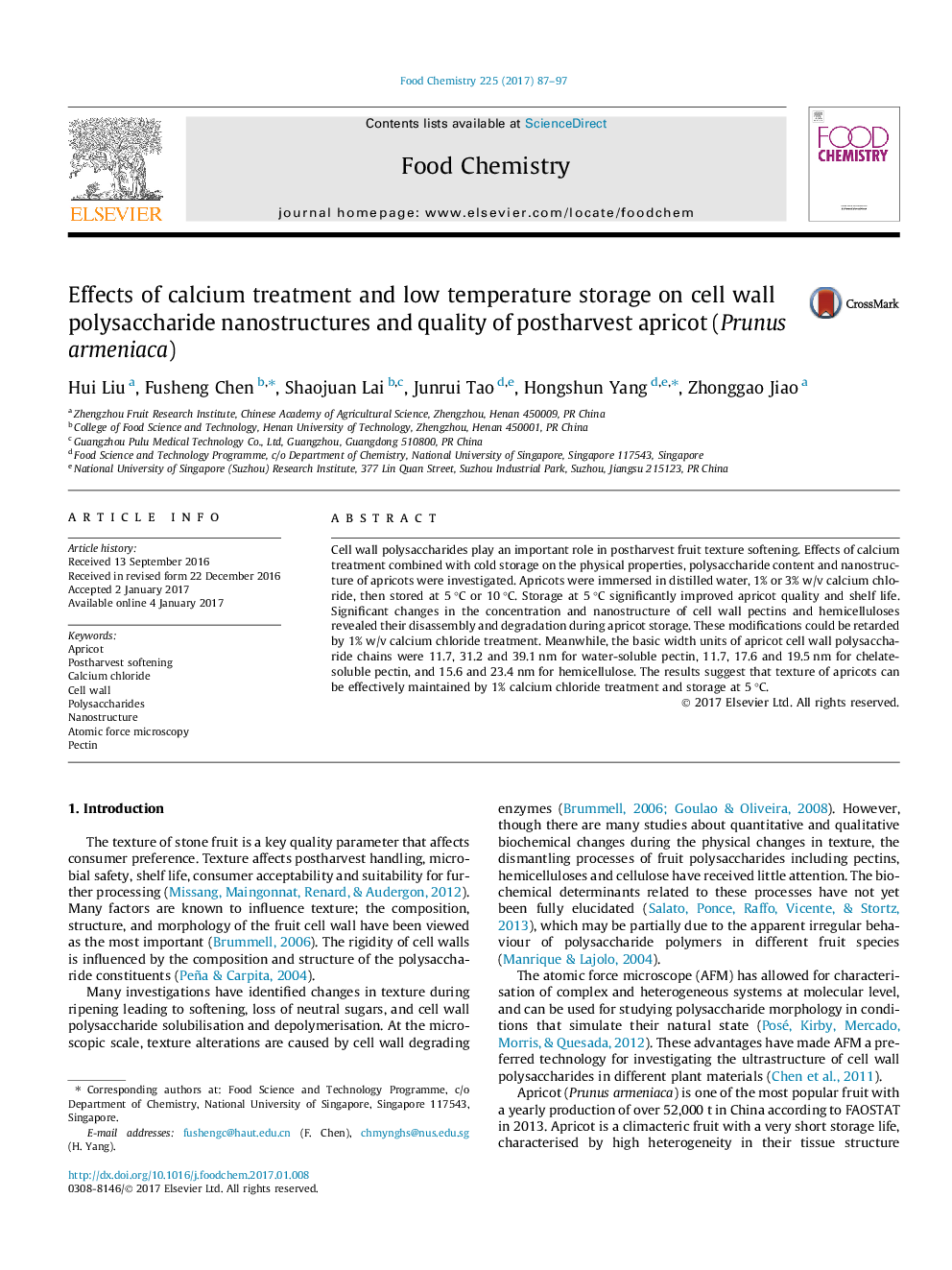| کد مقاله | کد نشریه | سال انتشار | مقاله انگلیسی | نسخه تمام متن |
|---|---|---|---|---|
| 5133906 | 1492067 | 2017 | 11 صفحه PDF | دانلود رایگان |

- Firmness decreased with depolymerisation and degradation of pectin polysaccharides.
- Chain length and width of pectins was linked to apricot firmness.
- 1% calcium and storage at 5 °C reduced cell wall degradation extending shelf life.
- Basic unit lengths of apricot cell wall polysaccharides were investigated.
Cell wall polysaccharides play an important role in postharvest fruit texture softening. Effects of calcium treatment combined with cold storage on the physical properties, polysaccharide content and nanostructure of apricots were investigated. Apricots were immersed in distilled water, 1% or 3% w/v calcium chloride, then stored at 5 °C or 10 °C. Storage at 5 °C significantly improved apricot quality and shelf life. Significant changes in the concentration and nanostructure of cell wall pectins and hemicelluloses revealed their disassembly and degradation during apricot storage. These modifications could be retarded by 1% w/v calcium chloride treatment. Meanwhile, the basic width units of apricot cell wall polysaccharide chains were 11.7, 31.2 and 39.1 nm for water-soluble pectin, 11.7, 17.6 and 19.5 nm for chelate-soluble pectin, and 15.6 and 23.4 nm for hemicellulose. The results suggest that texture of apricots can be effectively maintained by 1% calcium chloride treatment and storage at 5 °C.
Journal: Food Chemistry - Volume 225, 15 June 2017, Pages 87-97